| Home |
| Novels |
| Collections |
| Translations |
| Non-Fiction |
| Short Stories |
| Anthologies |
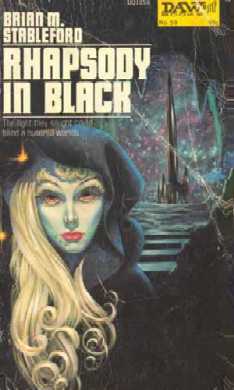
The planet was a sponge of stone and metal, honeycombed with millions of narrow passages, hidden lightless caves, and scurrying pale colonists who hated the stars and the men who came from them.
Somewhere amid the lightless maze there was a newly found treasure a thing, nobody knew just what, that what make its owner either richer than any emperor had ever dreamed, or give its finder power beyond any imperial army's weapons
Grainger, pilot of the starcraft HOODED SWAN, was down there in the darkness hunting Not for himself, but for the unscrupulous men who held his soul in bondage.
But the alien second mind that was parasitic to Grainger's owed no other human allegiance. To its inscrutable way of thinking, the potency of the unknown discovery could be a lever to move a universe.
Cover by Kelly Freas.
Published by DAW in June 1973.
Dedicated to Jack Spratling
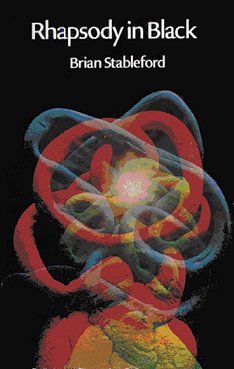
Grainger, pilot of the Hooded Swan, comes to Rhapsody with Titus Charlot, the big boss himself. The race is for the planet's secret wealth, and it accelerates when sixteen refugees from Rhapsody's false logic join in.
A planet outside the Law. Armed rebels who officially don't exist, Can the wind, Grainger's mind parasite, solve his problems, or is it more of a problem itself? Together they duped Charlot on Grainger's first assignment, in Halcyon Drift. But the pale people of Rhapsody's dark world are more subtly dangerous.
Cover by Bob Marchant
Published by J.M. Dent in January 1975.
ISBN: 0-460-04222-x
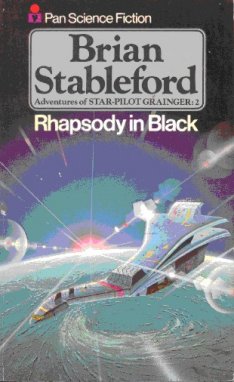
Hooded Swan was the best starship in the Galaxy, and Grainger the best pilot.
The trip to Rhapsody brought nothing but trouble. The poverty-stricken fanatics who lived in its subterranean labyrinths had found a source of riches.
In the race for the planet's secret wealth, Grainger found it could destroy civilization.
Grainger didn't picture himself and his alien mind-parasite alone in the planet's black depths, pursued by outcasts and rebels - but that was before he became Rhapsody's public enemy number one ...
'Brian Stableford keeps up a lively pace and has one of the best lines around in exobioiogy' -- TRIBUNE
Cover by Angus McKie.
Published by Pan in March 1976.
ISBN: 0-330-24646-1
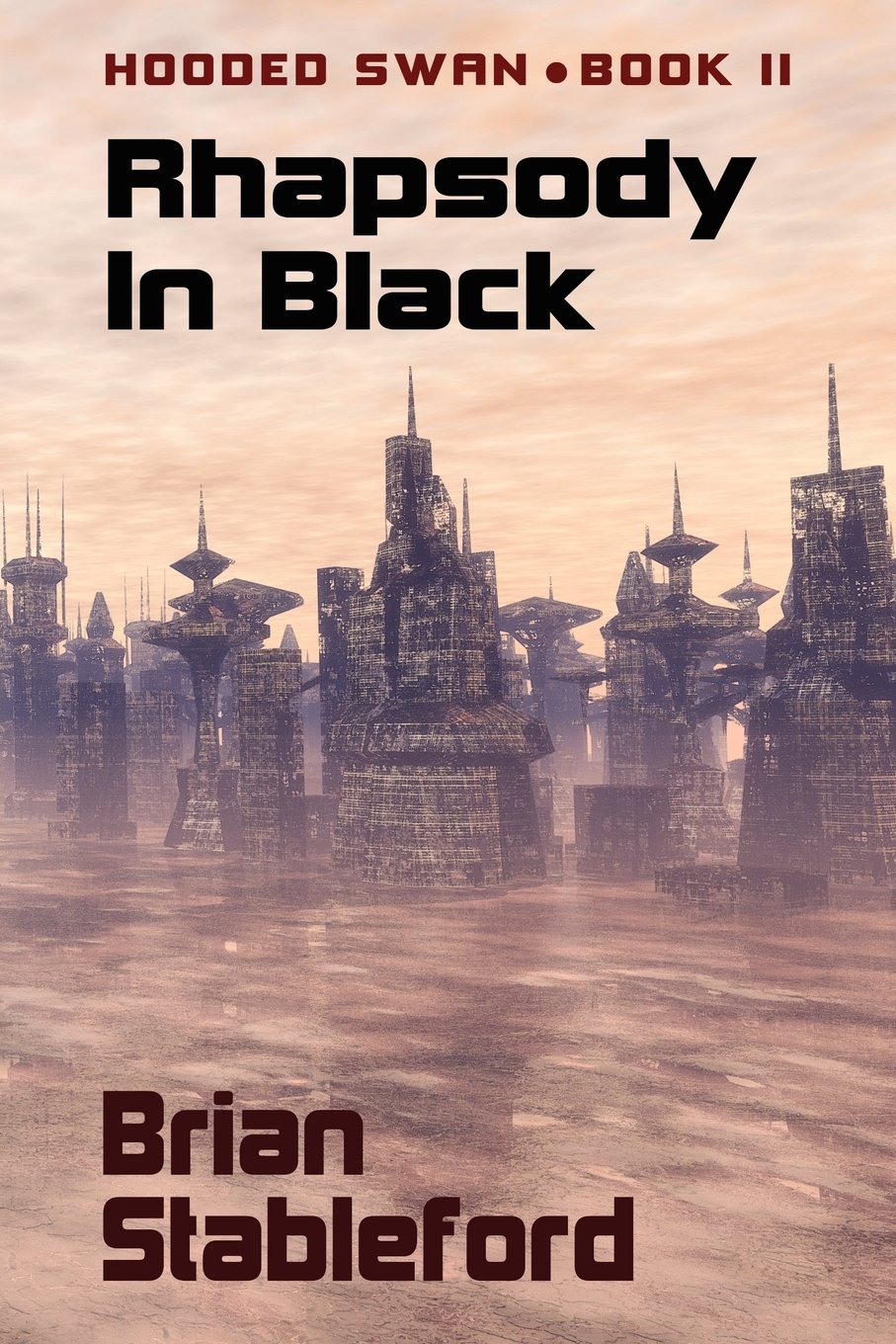
In a galactic culture that extends from quasi-Utopian worlds like New Alexandria and New Rome to vermin-infested slums like Old Earth, the Star-Pilots of the starships that link the cosmos together are the great heroes of the day. Grainger, who has become a legend in his own lifetime, is drafted to fly the prototype (the Hooded Swan) of a new ship that could revolutionize space travel.
The members of the ultra-ascetic Church of the Exclusive Reward have colonized a number of marginal worlds to exclude themselves from galactic society. On Rhapsody, church members lead a completely subterranean existence. Even the most tightly-regulated societies have their rebels, however, so when a major scientific discovery emerges from the caves of the dark planet, everything there starts to fall apart. If Grainger can secure a share in the coming bonanza, he could buy back his freedom from Titus Charlot. Before he can do that, however, he has to find some way of just staying alive....
Published by Wildside Press in February 2011
ISBN: 978-1-4344-1237-9
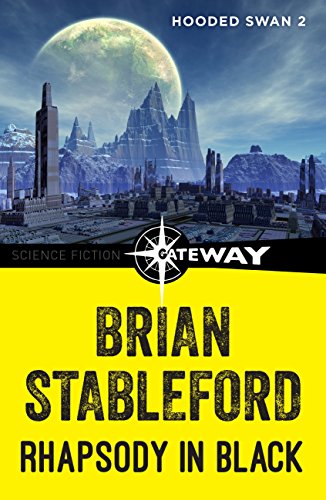
In the culture of the galaxy, the Star-Pilots of the starships that link the cosmos together have become the great heroes of the day. Grainger, who has become a legend in his own lifetime, is drafted to fly the prototype (the Hooded Swan) of a new ship that could revolutionize space travel.
The members of the ultra-ascetic Church of the Exclusive Reward have colonized a number of marginal worlds to exclude themselves from galactic society. On Rhapsody, church members lead a completely subterranean existence. Even closed societies have their rebels, however, so when a major scientific discovery emerges from the caves of the dark planet, everything there falls apart. If Grainger can secure a share in the coming bonanza, he could buy back his freedom from Titus Charlot. Before he can do that, however, he has to find some way of just staying alive . . .
Published by Orion (ebook) in April 2018.
ISBN: 978-1-4732-1951-9
In omnibus Swan Songs.
Translated into French as: Rhapsodie
Noir; also in
omnibus Grainger
des Étoiles: L'intégrale — tome 1.
Translated into German as: Der
Schatz des Schwarzen Planeten; also in omnibus Die
Saga vom Raumpiloten Grainger.
Translated into Japanese.

